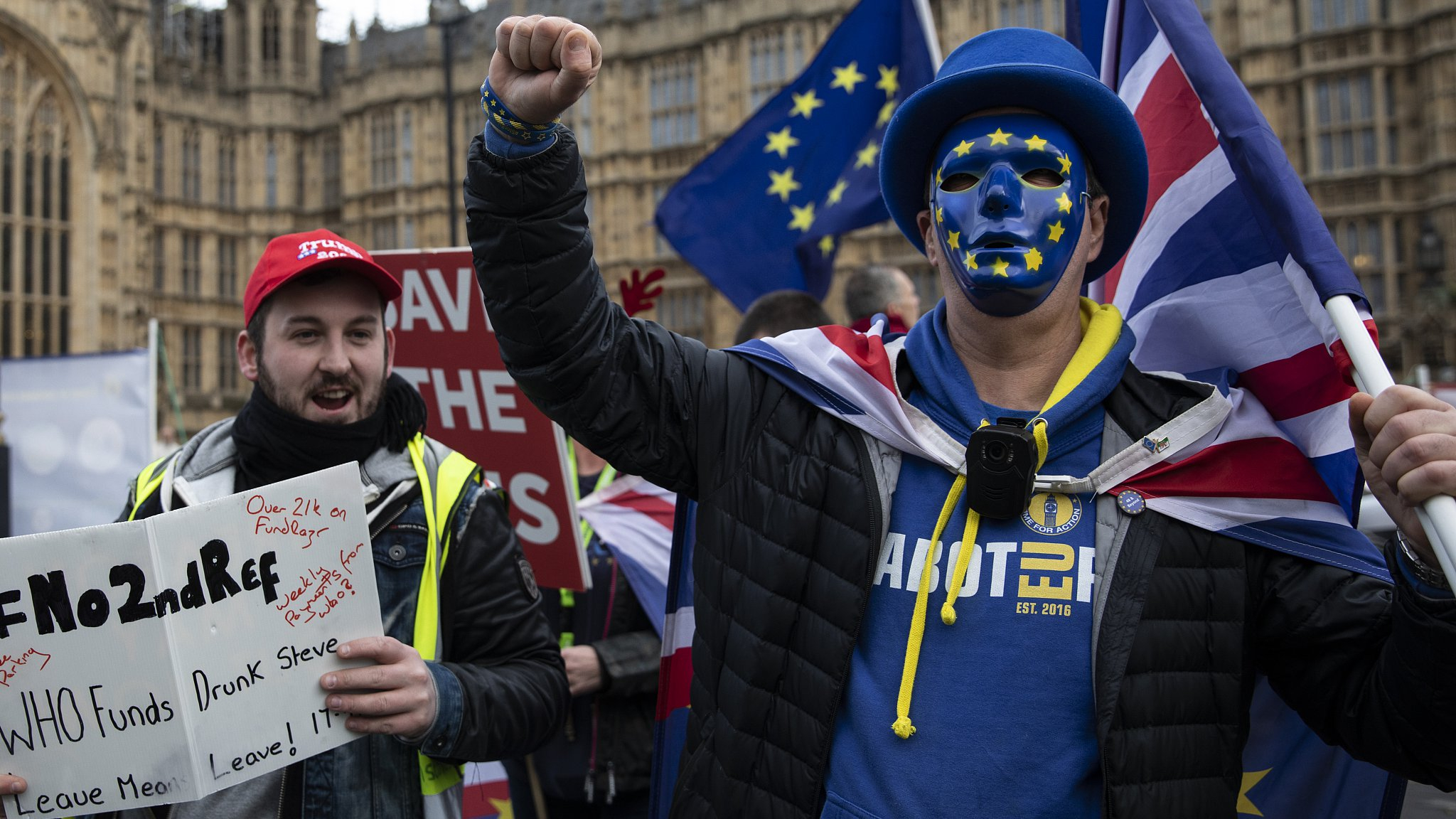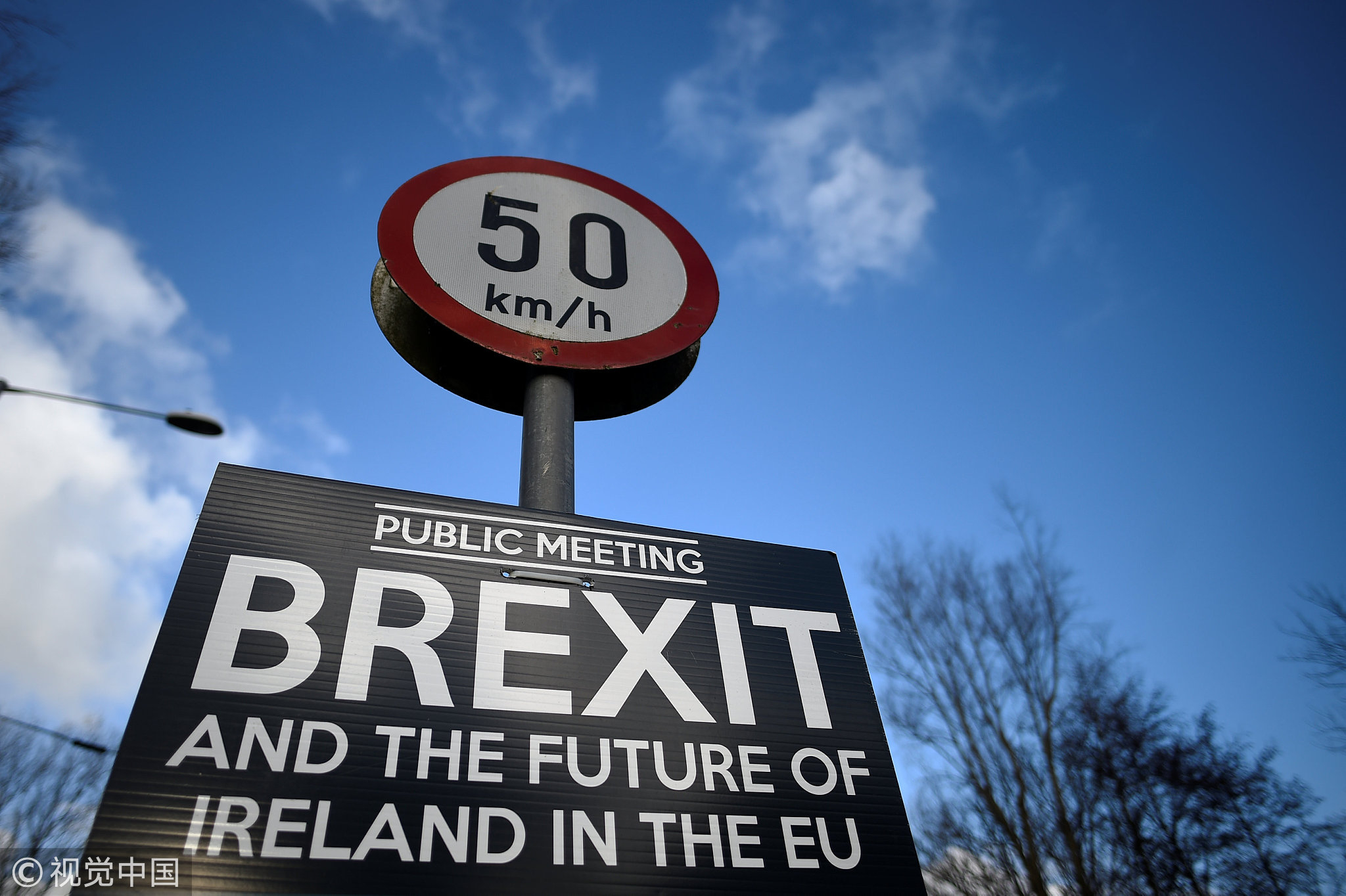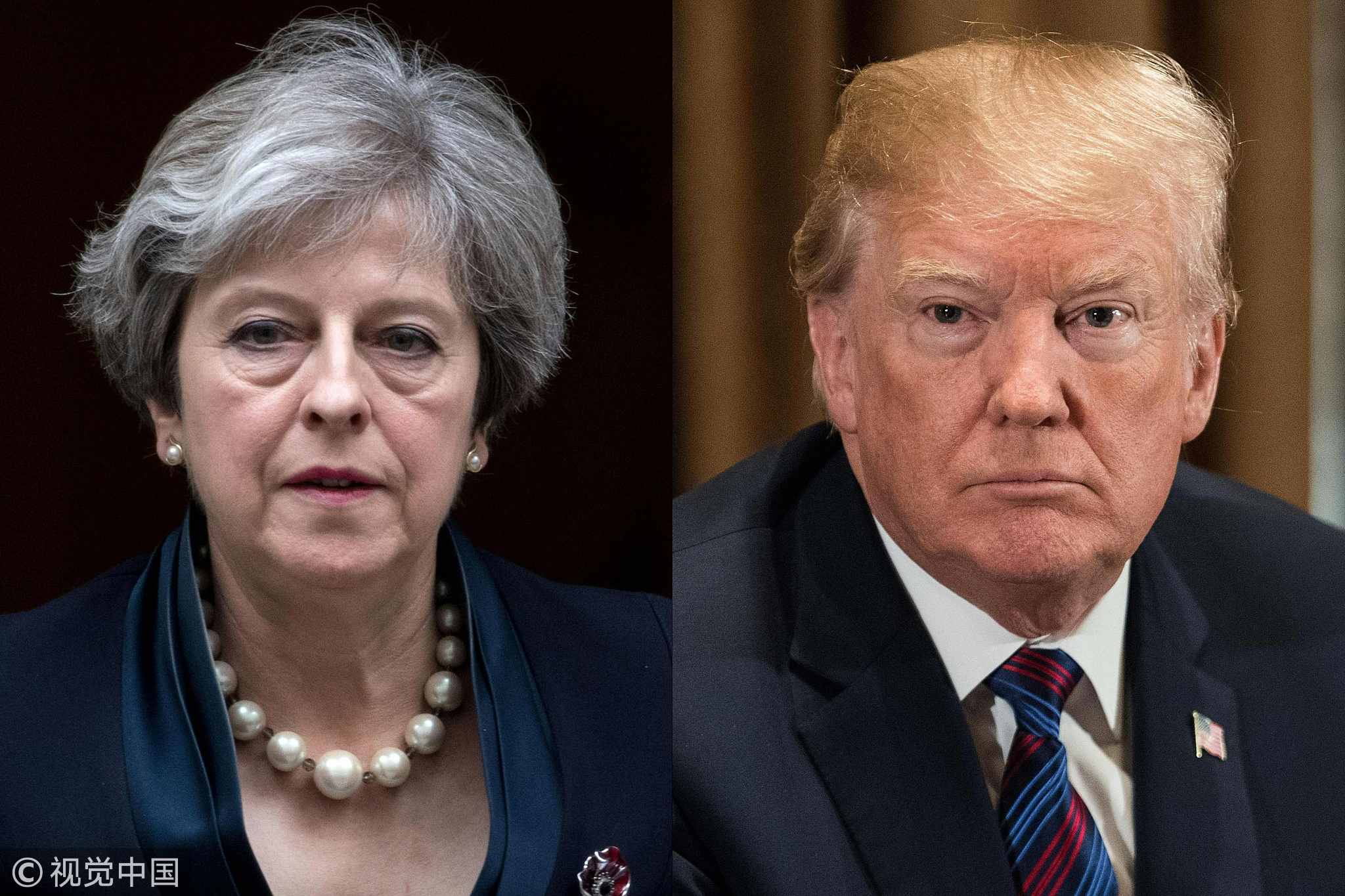
Opinions
19:42, 21-Dec-2018
Scenarios for post-Brexit era
Updated
18:53, 24-Dec-2018
Daniele Lazzeri

Editor's note: Daniele Lazzeri is the chairman of Italian think tank “Il Nodo di Gordio”. The article reflects the author's views, and not necessarily those of CGTN.
After the failure of all the attempts to reach an agreement between the European Union and the United Kingdom, the effects of the upcoming Brexit risk creating a real earthquake in London's international relations not only with Brussels but also with the United States and Russia.
The proposals which Prime Minister Theresa May worked on in recent months, not least the so-called "Chequers deal", have come to displease both the most intransigent of the "Tories" wing and the most negotiating Labour Party, forcing May to an internal tug of war that was about to cost her a political career.
Two years after the referendum that confirmed the will of the British citizens to leave the European Union, the game has now become even more difficult. There are less than 100 days until March 29, 2019 – the date on which London's divorce from Brussels will be made official – and strong tensions in the United Kingdom have already begun.
First, those related to the complex node of Northern Ireland and the borders with Eire.

Brexit protesters outside the Houses of Parliament, December 19, 2018. /VCG Photo
Brexit protesters outside the Houses of Parliament, December 19, 2018. /VCG Photo
Will they close the borders or will they manage to reach an agreement in order to leave them open? The question is not unimportant because their closure would risk blowing up the delicate balances born after the agreements reached for the pacification with the Irish Republican Army, after years of bloody battles.
If, on the contrary, the borders were to remain open, it could foment the protest by Scotland and Wales. Scotland in particular had voted by a large majority for the "Remain" and, it should be reminded, the separatists came up short in the referendum to obtain independence from London.
It is clear that the dissatisfaction with the Brexit result could convince the majority of Scots that a separation from London will bring greater benefits.
But there is another thorny issue that the United Kingdom will have to face, that of immigration. With Brexit, the arrivals of Europeans will be significantly reduced, which from now on they will be chosen and admitted exclusively on the basis of their actual usefulness in terms of qualifications and skills.

A Brexit sign is seen between Donegal in the Republic of Ireland and Londonderry in Northern Ireland at the border village of Muff, Ireland, February 1, 2018. /VCG Photo
A Brexit sign is seen between Donegal in the Republic of Ireland and Londonderry in Northern Ireland at the border village of Muff, Ireland, February 1, 2018. /VCG Photo
Most likely, Europeans will be replaced by those from the former Empire, but always on the basis of usefulness for England. It is a giant step back on the road to the free movement of people that has represented one of the most flagged political results of the European Union member countries.
London also risks becoming a "loose cannon” even in international relations. Undoubtedly the tensions with Moscow would be exacerbated, a long-standing partner little appreciated in London, but above all the historic relationship with Washington would take a new course.
After the arrival at the White House of Donald Trump, in fact, the relations between the UK and the U.S. have undergone considerable deterioration, leaving for the first time London in an unprecedented situation of isolation.
One of the Brexit effects could be to facilitate a rapprochement between the two countries, but probably May will not be the counterpart to these renewed agreements.

The combined picture shows Britain's Prime Minister Theresa May (L) and U.S. President Donald Trump. /VCG Photo
The combined picture shows Britain's Prime Minister Theresa May (L) and U.S. President Donald Trump. /VCG Photo
Boris Johnson, a personal friend of Donald Trump, is already "starting his engines" for a return in a big way in national politics.
Finally, the exit of the United Kingdom from the European Union will solve at least one serious anomaly. That of an important EU country that has not adopted the euro as a common currency while continuing to exercise the monetary power of the pound with competitive devaluations to the detriment of other member states.
Its own monetary policy managed entirely by the British Central Bank aimed at the exclusive domestic advantage but with the possibility to intervene heavily in the economic and financial choices of the entire European Union. This unprecedented anomaly will, perhaps, see its end the next fateful March 29.
(If you want to contribute and have specific expertise, please contact us at opinions@cgtn.com.)

SITEMAP
Copyright © 2018 CGTN. Beijing ICP prepared NO.16065310-3
Copyright © 2018 CGTN. Beijing ICP prepared NO.16065310-3